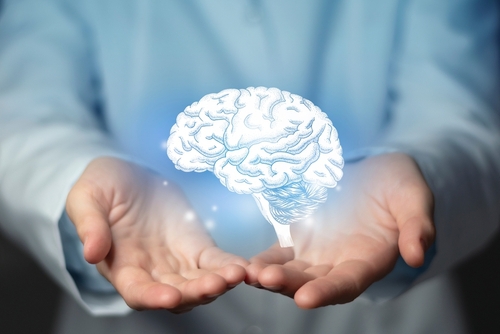
If you are involved in a Florida car accident, your injuries can vary from minor to severe. While it’s important to seek medical treatment immediately, you may have some injuries that don’t surface for days, weeks, or even months.
Even with a full medical evaluation, some injuries may not be apparent. One of the most common that tends to “hide” is neurological issues caused by a car accident. Knowing the signs and symptoms of this type of injury will help you know when it is time to seek additional treatment.
Experiencing a Head Injury After a Car Accident
It’s common to sustain a head injury in a car accident. In fact, an accident that seems minor can jerk your neck and body enough to cause your head to bang against the headrest.
Even though this may only cause a minor bump, it’s enough to damage your brain because of the high speeds your vehicle (and the other vehicle) travels. Also, your brain is extremely susceptible to damage. This impact can cause nerve damage and neurological issues, which may appear in several ways.
Potential Neurological Problems After a Car Accident
A car accident can cause nerve damage that has debilitating effects, including mental disorders, crippling headaches, emotional disorders, severe pain, and the inability to return to work. If you experience an untreated neurological injury, it can lead to all types of medical issues. Some of the most common include:
- Numbness or tingling in the lower and upper extremities
- Drop foot
- Loss of strength
- Severe pain
- Crippling headaches
These types of neurological issues require a thorough and complete medical evaluation. An accident victim who suffers from nerve damage or other neurological issues may require several months of specialized treatment, rehabilitation, and care. If you fail to get this treatment, you may experience permanent damage.
Along with seeking medical care, you must talk to one of our experienced and compassionate car accident attorneys. Our legal team can provide support and guidance through the entire legal process to help ensure you receive the compensation you deserve after you experience a neurological issue after being involved in a car accident.
There’s no reason that you should have to pay the medical costs and suffer from the impact of nerve damage due to another person’s negligence.
If you experienced nerve damage after being involved in a Florida car accident, our legal team at Zimmet & Zimmet is here to help. Contact us today to learn more about how we can help with your case.
Related Article: Who Is Going To Pay My Medical Expenses Following My Car Accident?
What to Know About Nerve Damages and Car Accidents
You can experience several types of nerve damage in a car accident. Each injury has unique symptoms and treatments.
There are three main ways that nerves can be damaged. This includes pressure, stretching, or severing the nerve. There are several injuries seen in car accidents that can cause serious nerve damage. These include:
Whiplash
Whiplash occurs when your head jerks violently. When this happens, the nerves in the area will stretch or be pinched.
Blunt Force Trauma
It may compress the nerves if you hit your head, legs, or arms on a hard surface outside or inside your vehicle. If this happens, neurological damage may occur.
Lacerations
A laceration is a deep cut to your skin. This can occur in an auto accident and sever the nerves in the area where the laceration occurs.
While these are common ways to sustain nerve injuries in car accidents, there are less common ways for this to happen to.
Related Article: How Do Car Accident Settlements Work?
Common Symptoms of a Neurological Injury After a Car Accident
It’s important to note that only a medical professional can evaluate your condition to determine if you have sustained nerve damage. They will also be able to determine what treatment is best for your condition.
Usually, your doctor can look at your spine to see what discs have been damaged, which will help them create a treatment plan that is unique to your injuries.
Signs that indicate you are dealing with damaged nerves include:
- Partial or full paralysis of appendages and limbs
- Pain or weakness in your muscles or stiffness in your back or neck
- Forgetfulness
- Headaches
- Increased sensitivity on your skin to cold or hot temperatures
- Numbness, tingling, or prickling sensation in your limbs or skin
- Uncontrolled movements or twitching in your muscles
- Tinnitus (ringing in your ears)
- The inability to understand the information and tasks you are given
Besides the symptoms mentioned above, you may experience other neurological issues in a car accident. These include radiculopathy or neuropathy.
What Is Neuropathy?
Neuropathy can occur after trauma (like a car accident), a physical injury, or during surgery. These situations may result in your nerves being completely or partially stretched, severed, compressed, or crushed. In some situations, the force can be so great that the nerves are completely or partially detached from your spinal cord.
Dislocated or broken bones can cause damaging pressure on nearby nerves, and some slipped discs between your vertebrae can compress the nerve fibers that emerge from your spinal cord.
Damage that occurs to the nerves in your peripheral nervous system can impact your ability to remain balanced, hold objects, and impact other motor skills you need for daily life. If damage occurs to these nerve fibers, it can cause pain and numbness in the affected area.
Even when your spine or head doesn’t experience a significant impact, you may still cause a neurological disorder. This is one of the main reasons you should schedule an appointment with a doctor or even a neurologist after being involved in a car accident. You should also go to a neurologist to ensure you don’t have a more serious brain injury, which can be caused by severe whiplash.
Because your peripheral nerves have minimal ability to regenerate, if you are significantly impaired, you may require physical therapy to help avoid muscle cramping and spasms and to regain strength. Sometimes, surgical treatment is recommended if you have severe nerve injuries or compression. Mobility aids may also be recommended, which include wheelchairs, walkers, canes, and more.
Let Our Attorneys Help You Recover the Compensation You Deserve
You can recover compensation if you are involved in a car accident that causes a neurological injury. It’s important to contact our legal team at Zimmet & Zimmet for help. We will review your situation, gather evidence, and help you recover compensation from the at-fault party.
We understand how difficult it can be to move forward after a car accident that causes serious injuries or neurological damage. Not only does it impact you, but your entire family. We are here to help. We are your partners and advocates and will ensure that you receive adequate compensation to help you recover and to help reimburse you for your accident-related losses.
Read More
- How Much Compensation Are You Entitled to After a Traumatic Brain Injury?
- How Can an Orlando Car Accident Lawyer Help You?
Have you been injured in an accident or fall? Do You have question and want to know your legal options. Call 386-255-6400 for a free consultation and remember there is NO FEE unless WE Win.
